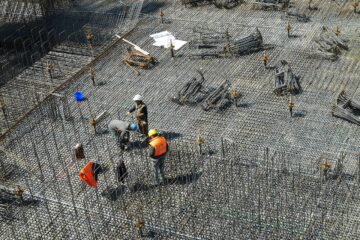![]()
Facts:
The defendant, a resident of Chennai, was riding his bicycle at 08:20 a.m., on 31st December 1991 and suddenly he was hit by a motorcycle. The consequences were that the defendant developed an injury on his leg. At 09:45 a.m. he was admitted to The Surya Hospital, of which the plaintiff, Dr. C.P. Sreekumar was the Managing Director. X-ray of the injured leg Dr. C.P. Sreekumar, M.S. (Ortho) v/s S. Ramanujam. As the responding doctor, the plaintiff chose a conservative line of treatment and put the respondent’s leg in a plaster of Paris bandage known as `derotation boots’ to immobilize the leg. The defendant insisted to recover at home and so was released. On 8th January 1992, the defendant undertook another X-ray test which revealed that the hairline fracture had developed into a more serious fracture.
The plaintiff decided to operate the fracture. Pre-operative evaluations were made on 9th January 1992 and the appellant, on considering the various options available, decided to perform a hemiarthroplasty instead of going in for the internal fixation procedure, to which the defendant consented. The operation was performed on 10th January 1992 and the defendant was admitted as an indoor patient for post-operative treatment and monitoring. While monitoring it was observed that a superficial operation had set in.
The infection was removed on 21st January 1992 and was made to undergo physiotherapy and was discharged on 5th February. On 6th March 1992, the defendant appeared in the hospital and got his injury reviewed and was instructed to undergo physiotherapy and return for a subsequent review two weeks later, which the defendant neglected. On account of lingering pain, the defendant consulted many doctors, including Dr. Mohandas of Tamil Nadu Hospital on 27th May 1992. The defendant continued to make a nuisance with his frequent visits and behavior in hospital, to which the plaintiff gave a sum of Rs 50,000/- as ex-gratia.
Issue
1.) Whether the plaintiff is liable for medical negligence and deficient services provided to the defendant? Onus to prove on the defendant
2.) If the plaintiff is negligent, then how many claims should the defendant be provided?
Judgment
The Court held that the plaintiff had been negligent and services were deficient and a sum of Rs.5.50 Lac along with interest on a part of the aforesaid amount and costs of Rs.25000/- has been awarded to the defendant.
Case History
On 19th November 1992, the defendant sent an advocate’s notice alleging the hospital staff of negligence and deficiency in service due to which the simple fracture developed into a more complicated one.
On 15th December 1992, the plaintiff denied the charge of negligence and further stated that the fracture deteriorated due to natural causes i.e. a muscle spasm and that respondent after being informed about the various lines of treatment available had consented to the hemiarthroplasty.
In May 1993, the defendant filed a complaint before the State Commission alleging that the plaintiff did not take his consent for performing hemiarthroplasty and that hemiarthroplasty was not required as the bone was in the good condition. The plaintiff denied all these charges and prayed, to the court, for the dismissal of the complaint. After the total hip replacement of the defendant, he moved an application before the State Commission seeking to amend the complaint whereby the claim was increased from Rs.3 to Rs.12 Lac. On 29th January 1999, State Commission dismissed the complaint as they found that there had been no negligence or deficiency in service of the hospital staff.
On 12th April 1999, the defendant filed an appeal before the National Consumer Disputes Redressal Commission. On 15th November 2006, the commission allowed the appeal but limited the respondent’s claim to Rs 2.5 Lac (being the balance amount after deducting Rs. 50,000/- allegedly paid as an advance) but, also granted a further sum of Rs. 3 Lac to cover the contingency that he might have to undergo yet another surgery at some later stage. This judgment disposed of the plaintiff’s appeal for seeking a dismissal of the complaint made by the defendant, and the defendant’s appeal for seeking an enhancement of the compensation to Rs. 12 Lac.
Case Analysis
The State Commission dismissed the defendant’s complaint for negligence and deficiency in service of hospital staff because the defendant was not able to prove mishandling by the hospital staff.
The National Consumer Disputes Redressal Commission concluded that the defendant was moved by some laborers who were not qualified to handle a patient.
The plaintiff did not even have a warrant proving that the fracture deteriorated due to muscular spasm so the allegations made in the complaint could not be regarded.
The commission also emphasized that hemiarthroplasty was performed only on patients of the aged 60 years and above, and the respondent’s age was 42. The open reduction procedure, whereby the bones are brought together and clamped by metal screws etc., was the appropriate one for the defendant.
The Commission accordingly opined that the fact that only a few days after the hemiarthroplasty, the respondent had developed an infection clearly showed negligence at the hands of the attending doctors.
The Commission further observed that from the certificate issued by Dr. N.K. Sundaram of Tamil Nadu Hospital it was clear that a total hip replacement would fail over a period of time and would need to be revised again with a new artificial joint, which would cost Rs.3 Lac and that this amount too was payable to the respondent. A total sum of Rs.5.50 Lac was, thus, computed and awarded.
Conclusion
Dr. C. P. Sreekumar, though qualified in Orthopedics, did not have the basic skill to carry out a hemiarthroplasty or an internal fixation and for that reason was not competent to perform the procedure. This case holds extreme importance that sometimes even the professionals can be at fault and negligent. Those faults originate other body issues as we witnessed in this case, and can cause trouble to the patients. A professional shouldn’t operate when he does not have the basic skills or even when he has only half the skills required because half knowledge is dangerous. The operation should only be performed by a person well trained to carry the operation.



0 Comments